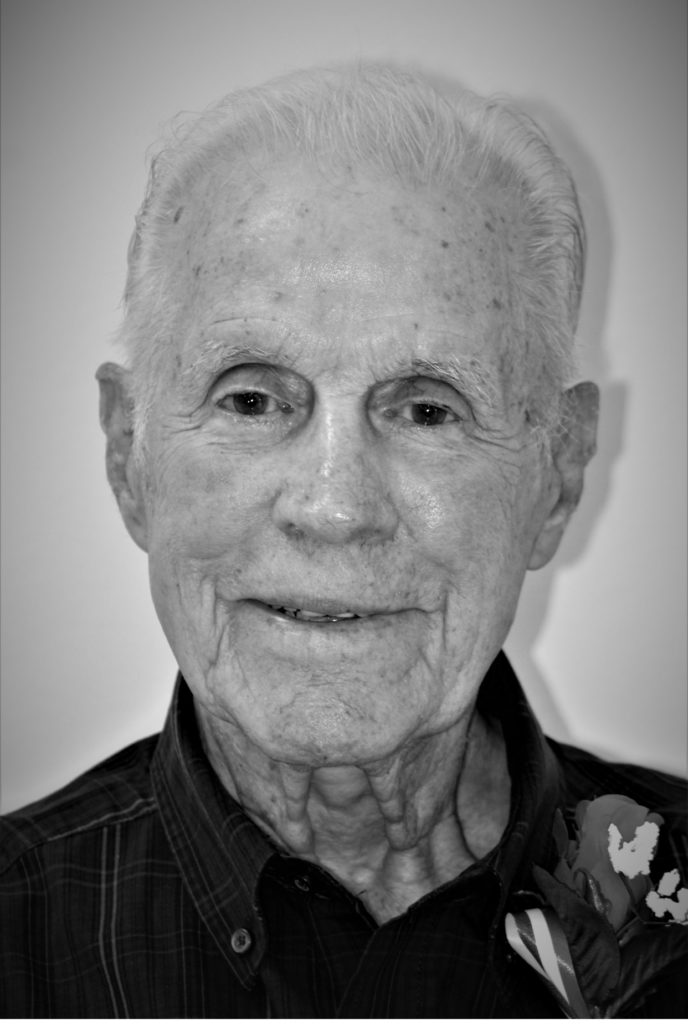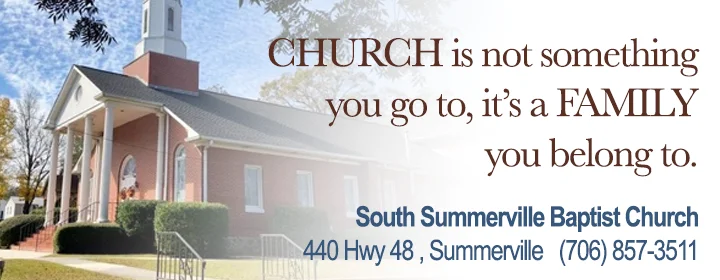
The United States’ National POW/MIA Recognition Day is observed across the nation on the third Friday of September each year. This year the day of recognition will be observed on September 21. Many Americans will take the time to remember those who were prisoners of war (POW) and those who are missing in action (MIA), as well as their families.
America’s Greatest Generation served their country and sacrificed over 400,000 men during World War II. As fewer and fewer of the veterans of this last epic war remain with us, our country still struggles to find adequate ways of repaying the debt owed to these men. For those soldiers and airmen who spent time as Prisoners of War, they are now a national treasure with stories that stir our hearts and move our souls.
Sgt. Leo Lanier is Chattooga County’s only remaining World War II POW.
Leo Lanier, Jr. was a 19-year old kid in 1942. He along with all the graduating football players from Trion High School enlisted in World War II as soon as school was over. The team is remembered as ‘the team who went to war’. “December 7th 1941 changed not only my life in the years to come, but the whole world,” Leo Lanier jotted down in his war time diary.


As a testament to his character, Lanier decided to sign up for a second tour in the European Theater and was shot down on April 10th, 1945 on the seventh mission of his second duty (33rd total mission). Near Brandenburg, Germany Lanier’s plane came under enemy fire and a fire broke out on the plane and the crew was instructed to abandon ship at 25,000 feet. They were quickly captured by German soldiers and sent to a prisoner of war camp. He was held as a prisoner at Stalag 3A Camp.
Below is the diary entry from Sgt. Lanier’s account of April 10, 1945:
April 10th, 1945 – Mission not completed

Today was another beautiful day, and we were bombing a German airfield, near Brandenbur, Germany. We were due over the target area between two and three o’clock in the afternoon. We were flying at 22,000 feet but it seemed the anti-aircraft fire was more accurate and heavy today. They seemed to have us pinpointed for target.
The first explosion hit and knocked out our No. 1 engine.
The next hit both outboard engines, a fire started, the control cables were hit. I was knocked off my bicycle type seat in the tail, but was not hit.
I heard (Pete) our pilot ask for anyone hurt to call in, and tell us our right wing was on fire. He gave the order to abandon ship as soon as we could get out.
My rear emergency door would not open. I rushed up to the waist, and Wally was trying to get the door open off there. The best I can remember, that door would not come off, and my strap hung up as I was trying to get out. Wally probably saved my life by being still there to help me.
We only had one chute (chest type) so if you get out, and if you had a chute that would be alright, you had a chance of at least hitting the ground.
The parachute did open, the jerk was straining, but knowing it worked was of some relief. I do not know the time it took to float down, but it seemed forever, not knowing what would be waiting when I landed.
Three P-51 fighters circled me for a while. Bob, Wally and I were the last to get out of the plane, and we landed about a half mile apart, near a village. We could hear the bombs hitting from the Groups flying behind us.
I hit close to a railroad track, and hit very hard, the impact stunned me, and I could hear rifle fire all around. I picked up my parachute, heading to some woods, they spotted me and started shooting. I jumped aside, and hit the ditch, but I knew the .45 caliber would almost surely get me killed if I tried to use it.
I raised my hands, and saw quick that we could be killed by these Germans. They perhaps felt they had a right to hang us.
We were saved only by soldiers, who took our guns (Bob, Wally and I) and put us on a truck, we were happy to get away from the crowd who were threatening us. We were taken to a camp where we were stripped, and interrogated. They took most of our flying clothing. I had jumped with my shoes tied to my harness, but the jerk caused them to loosen and fall, they let me keep the flying boots, but they would be no good for what was ahead I later found out.
We were put into separate small cells that night with only a wooden bed to sleep on, and was brought a bowl of soup which was mostly water. The excitement of that day had been too much to eat anyway. I thanked the Lord that sleepless night, over and over for letting me survive my ordeal so far. I remember praying that Mother would somehow know when she received word I was missing I was still alright.
Today my future brother-in-law told me later (Sgt Jim Langston) after we had married sisters, he remembered seeing us parachuting, and also being brought into this camp. He remembered seeing me, and hearing what news we had on the war.
The next day Bob, Wally and I, with three guards (one telling us his wife had died in a daylight raid) which made us uncomfortable to start with, boarded a train, and may have gone into Brandenburg, we stayed several hours, but could not go wherever they intended to take us. We were uneasy being around so many Germans (felt much safer in camp).
Finally, we were put on a train that night headed back to where we had come from we thought. We got off at a smaller station, and the air raid sirens sounded, the RAF Bombers were flying overhead, probably heading for Berlin. This was another tense time for us because every German eye was on us, many were looks of hate and revenge. When out of trouble we hoped, a S.S. officer in the crowd decided to pull a gun on Bob and Wally as they had been outside to use a restroom, he threated to shoot them, and soon they got my guard and me to follow, and quickly we all six got into an empty box car, I believe darkness saved our lives that night. We could hear them looking for us.
Somehow the next morning we were on our way again, and found ourselves in what we thought was the same camp. We were all put together. Next morning we began to march along with others (English also) the Germans were evacuating, and we could hear the guns on the front. For about five days we were marching and sleeping wherever they put us.
I could see the way a piece of bread, or potato could make a man turn into something else. I could see the hatred the German S.S. Troopers had also. They were feared by their own soldiers as well as civilians. We were put into a Camp III A Luckenwalde not far from Berlin.
Many Russians were here, and we saw many already dead, and they were a sad sight to look upon. Most had starved to death or died from disease, only the strongest survived. In the next two or three days, we could hear the gunfire, and saw Russian fighters flying over head.
On about 22nd, Sherman made tanks with Russian crews came right through the barbed wire, the Germans had left, and we felt safe for the present.
We could hear the artillery and small gunfire as well as see the smoke from bombing in the air around us.
Around May 1st, Wally and I, along with friend Jerry from Iowa, left camp on our own to see if we could get back to the American lines. We witnessed Russian soldiers capture some Germans and females were with them that afternoon from some woods. We saw many dead Germans around, both young and old. Many fought to the death from behind trees or wherever they took their last stand. The Russians buried their own but not the Germans. The Russians put us up for the night, and the next day we were on our way to Wittenburg where we spent the night and found whatever we could to eat.
Food was hard to find. Late next day we met the first Americans and we felt safe when we got under their protection. They had to put some raincoats over what we had on for fear that we would be mistaken for enemy soldiers. After the crossed the Elbe river, we spent the night with these who had crossed the river to take us back. They gave us our first real meal that night but it was too much for us all at once and we paid for it by getting real sick.
We were taken to the POW receiving center at Shonebeck where we were cleaned up, deloused but still had body lice on us. Then we were taken to Hilshein, Germany and spent a night and the next day were flown on a C-47 to Rheims, France.
After we had thrown away all our clothes, showered and sprayed for lice, we put on some new clothes. We were finally rid of the body lice, which was a relief we welcomed. By train we were taken to Camp Lucky Strike, France where the food was the best and we could drink all the milkshakes with eggs that we wanted. Soon we left for LaHarve, France where we were put on the U.S.S. General Butner and the next day headed for home.
After several days at sea, we arrived at Newport News, Virginia. Here we got our first steak with all the trimmings. It was a wonderful feeling knowing we were back in the U.S.A.
I got home around June 26th 1945 and enjoyed a long furlough. I left September 22nd for San Antonio for my discharge by bus. I stayed there for a few days and was then put on a train for Greensboro, North Carolina army air base and received my discharge October 10th, 1945. After arriving back home for good, Reita and I were married November 9, 1945 and we are blessed with one daughter, Patti.
Let me end by saying this although all of this happened over 40 years ago (now 70 years ago) I agree with my brother-in-law J.T. Langston when he says I think about it and relive it every day of my life.
I was familiar with our own President F. D. Roosevelt, but I know little of leaders like Winston Churchill of England, Joseph Stalin of Russia, Adolf Hitler of Germany, Benito Mussolini of Italy, and Emperor Hirohito of Japan.The world had already entered into a war that would end up killing more people, and destruction beyond any imagination.The whole world seemed to explode, and it would take many years to recover from after the conflict would end.Two sides, one fighting for freedom, liberty, the other for greed and power, would show us how only a few men like Hitler, Mussolini, Hirochito, and their powerful armies almost became rulers of our whole world. God spared our nation the destruction other nations suffered, but we will always owe our gratitude and remembrance to those many who paid the supreme sacrifice, for our freedom we enjoy today.
At the end of harrowing adventure, Lanier followed his footsteps home where he served Chattooga County as part of the United States postal service for 30 years, he literally was every Chattooga County resident’s mailman at some point in those three decades of service. It took Lanier several decades to share his painful memories from the war.
Leo and Reita
Barbara Reece said it best when she said, “you can’t think of Leo without thinking of Reita and you can’t think of Reita without thinking of Leo.” The love and mutual respect the couple shares today has only grown since their wedding day on November 9th 1945. The couple had a home wedding at Reita’s family home in Rome, Ga. The couple had met at a party in Trion. In the 1940s the game young adults played was ‘Buying and Selling Cars’ instead of spin the bottle, “I had a Chevrolet car, Leo bought a Chevrolet, so we took a walk for quite a spell, we just started talking and kept talking,” recalls Reita. The couple has always driven a Chevrolet.














